Njal's Saga Read online
Page 6
Hrut returned in the autumn with a great amount of booty and went at once to the king and had a good welcome. He offered the king and his mother as much as they wanted to take, and the king took a third. Gunnhild told Hrut that she had taken his inheritance and had Soti killed. He thanked her and gave her half of it.
6
Hrut stayed with the king in high favour that winter. But when spring came he was very silent. Gunnhild noticed this and spoke to him when they were alone.
‘Is something troubling you, Hrut?’ she asked.
‘There’s a saying,’ said Hrut, ‘that “it’s difficult to dwell in a distant land”.’
‘Do you want to go to Iceland?’ she said.
‘I do,’ he said.
‘Do you have a woman out there?’ she said.
‘No,’ he said.
‘I’m sure that you do, though,’ she said. At this they stopped talking.
Hrut went to the king and greeted him.
The king spoke: ‘What do you wish to do now, Hrut?’
‘I want to ask you, my lord,’ he said, ‘for permission to go to Iceland.’
‘Will your prestige be greater there than here?’ said the king.
‘Probably not,’ said Hrut, ‘but a man must do what is set out for him.’
‘You’re pulling against a powerful man,’1 said Gunnhild. ‘Let him go as he sees fit.’
Supplies were low that year, but the king2 gave him as much flour as he wanted. Then Hrut, together with Ozur, prepared to sail to Iceland. When they were ready, Hrut went to the king and Gunnhild.
She took him aside and spoke to him: ‘Here is a gold bracelet which I want to give you,’ and she put it around his arm.
‘Many a good gift have I had from you,’ said Hrut.
She put her arms around his neck and kissed him and spoke: ‘If I have as much power over you as I think I have, then I cast this spell: you will not have sexual pleasure with the woman you plan to marry in Iceland, though you’ll be able to have your will with other women. Neither of us comes out of this well, because you did not tell me the truth.’
Hrut grinned and went away. He then went before the king and thanked him. The king spoke kindly to him and wished him a good journey; he said that Hrut was a very brave man and well fit for the company of noble men. Hrut went at once to his ship and set sail, and with good winds he reached Borgarfjord. As soon as the ship was drawn up on land Hrut rode west to his home, and Ozur saw to the unloading.
Hrut rode to Hoskuldsstadir. Hoskuld welcomed him, and Hrut told him all about his travels. Then they sent a man east to Mord Gigja to tell him to prepare the feast, and then the brothers rode to the ship and Hoskuld told Hrut about his property, which had gained greatly in value while he was away.
Hrut said, ‘Your reward is less than you deserve, but I will give you as much flour as you need for your household this winter.’
They drew the ship up on land and secured it, and transported all the cargo west to Dalir.
Hrut stayed at home at Hrutsstadir until six weeks before winter.3 Then the brothers and Ozur made ready to ride east for the wedding, and they rode off with sixty men until they came to the Rangarvellir. Many guests from the neighbourhood had already arrived. The men took their places on the side benches, and the women occupied the cross-bench at the end. The bride had a sad look about her. The feasting and drinking went well. Mord paid out the dowry for his daughter, and she rode off west with Hrut’s party. They rode until they reached home.
Hrut placed in her hands full authority over matters inside the house, and everyone was pleased at that. But there was little intimacy between her and Hrut, and so it went all through the winter.
When spring came Hrut had to travel to the West Fjords to get payment for his wares, and before he left his wife said to him, ‘Will you be coming back before men ride to the Thing?’
‘Why do you need to know that?’ said Hrut.
‘I want to ride to the Thing and see my father,’ she said.
‘So be it,’ he said, ‘and I’ll ride to the Thing with you.’
‘Good,’ she said.
Then he rode away to the West Fjords and put the money he collected out to loan and rode back home. When he arrived from the west he prepared for the Althing and got all his neighbours to ride with him. His brother Hoskuld rode along too.
Hrut said to his wife, ‘If you’re as eager to go to the Thing as you said you were, get ready and ride along with me.’
She was soon ready, and they rode to the Thing. Unn went to her father’s booth; he was happy to see her, but her spirits were rather heavy. When he noticed this he said to her, ‘I’ve seen you look more happy. What’s on your mind?’
She began to cry but gave no answer. Then he said to her, ‘Why have you come to the Thing if you’re not willing to take me into your confidence? Don’t you find it good out there in the west?’
She answered, ‘I would give everything I own never to have gone there.’
Mord said, ‘I’ll soon get to the bottom of this.’
He sent a man to fetch Hoskuld and Hrut, and they came at once. When they came into Mord’s presence, he rose and greeted them warmly and asked them to sit down. They spoke at length and it went well.
Then Mord said to Hrut, ‘Why does my daughter find it so bad out there in the west?’
Hrut said, ‘Let her speak, if she has any charges to bring against me.’
But no charges were brought. Hrut then had his neighbours and his household questioned as to how he treated her. They gave him a good report and said that she had sole authority over as much as she wanted.
Mord said, ‘Go home and be content with your lot, for all the evidence favours him rather than you.’
Then Hrut rode home from the Thing, together with his wife, and things went well between them that summer. But when winter came the difficulty returned, and it became worse as spring drew on. Hrut had to make another trip to the West Fjords and declared that he would not be riding to the Althing. His wife Unn had nothing to say about this. Hrut set off as soon as he was ready.
7
The time for the Thing came near. Unn spoke with Sigmund Ozurarson 1 and asked if he would ride to the Thing with her. He said he would not, if it displeased his kinsman Hrut.
‘I appealed to you because I thought that you, of all people, owed me a favour,’ she said.
He answered, ‘I’ll make this condition, that you ride back again with me and have no hidden plot against Hrut or me.’
She promised this, and they rode to the Thing.
Mord, her father, was there. He welcomed her and asked her to stay in his booth during the Thing, and she did so.
Mord spoke: ‘What have you to tell me about your partner Hrut?’
She answered, ‘I can say only good things about him in the matters over which he has control’
Mord took this silently.
‘What’s bothering you, daughter?’ he said. ‘I can see that you don’t want anybody to know about this but me, and you can count on me as the best one to solve the problem.’
They went off to where no one could hear what they said.
Then Mord spoke to his daughter: ‘Now tell me everything that’s going on between you, however big it may seem in your eyes.’
‘All right then,’ she said. ‘I want to divorce Hrut, and I can tell you what my main charge against him is – he is not able to have sexual intercourse in a way that gives me pleasure, though otherwise his nature is that of the manliest of men.’
‘How can that be?’ said Mord. ‘Give me more details.’
She answered, ‘When he comes close to me his penis is so large that he can’t have any satisfaction from me, and yet we’ve both tried every possible way to enjoy each other, but nothing works. By the time we part, however, he shows that he’s just like other men.’
Mord spoke: ‘You’ve done well to tell me this. Now I have a plan which will serve you well, as long as you foll
ow it carefully and don’t deviate from it. First you must ride home from the Thing – your husband will have returned and will welcome you. Be pleasant and compliant, and he will think that there’s been a change for the better. Don’t show any sign of coldness. When spring comes you must pretend to be sick and stay in bed. Hrut will not try to get at the cause of your sickness and he will not find any fault with you – in fact he will ask everybody to do their best in caring for you. Then he will go to the West Fjords, together with Sigmund, to bring back all his holdings from there, and he will be away for much of the summer. When people ride to the Thing, and when all those from Dalir who plan to go have set off, get out of bed and summon men to travel with you. When you’re ready, go to your bed with the men who are to travel with you, and at your husband’s bedside name witnesses and declare yourself legally divorced from him, as is allowable according to the rules of the Althing and the law of the land. You must repeat the naming of witnesses at the men’s door.2 Then you must ride away, over Laxardal heath as far as Holtavarda heath, for you won’t be pursued as far as Hrutafjord, and keep riding until you come to me. I’ll take over the lawsuit then, and you will never come into his hands again.’
She rode home from the Thing; Hrut had already come home and he welcomed her warmly. She responded well to his words and was pleasant towards him. Their relations were good during the summer and winter. When spring came she took ill and lay in bed. Hrut went off to the West Fjords, but first asked that she be well taken care of. When it came time for the Thing she made ready to leave and did everything exactly as she had been told and then rode off. The men from the district looked for her, but did not find her. Mord welcomed his daughter and asked her how closely she had followed his plan.
‘I didn’t deviate from it at all,’ she said.
He then went to the Law Rock and declared them legally divorced.3 People thought this was a big event. Unn then went home with her father, and never again went west to Hrutsstadir.
8
Hrut came home, and his brows shot up when he learned that his wife was gone. But he kept his temper and stayed at home all summer and winter and spoke to no one about it. The following summer he rode to the Althing with his brother Hoskuld and many others. When he came to the Thing he asked whether Mord Gigja was present. He was told that he was, and everyone expected that the two of them would discuss their case, but this did not happen.
One day when men went to the Law Rock, Mord named witnesses and gave notice of a claim against Hrut for his daughter’s property, and he set the figure at ninety hundreds. He declared that this amount was to be paid and handed over, and he declared a fine of three marks.1 He gave notice of this in the Quarter Court to which the suit legally belonged, and also gave legal notice in the hearing of all at the Law Rock.
When he had spoken this, Hrut answered, ‘You are prosecuting your daughter’s case more out of greed and aggressiveness than good will or decency, and since you do not yet have my money in your hands, my response is this: I hereby declare – and let all these listening here at the Law Rock be my witnesses – that I challenge you to a duel. The stakes shall be the amount of the marriage agreement, to which I will add an equal sum, and let the one who wins take it all. If you choose not to fight me, you lose all property claims.’
Mord was silent and sought advice from his friends about the duel. Jorund the Godi answered him: ‘You have no need to talk over this matter with us, because you know that if you fight Hrut you will lose both your life and the money. He is well endowed, great by his own deeds and a very brave man.’
Mord then announced that he would not fight with Hrut. Great hooting and hissing went up at the Law Rock, and Mord was much disgraced.
After this men rode home from the Thing.
The brothers Hoskuld and Hrut rode west to Reykjadal and stayed overnight at Lund. Thjostolf the son of Bjorn Gold-bearer lived there. Rain had fallen heavily during the day and the men were wet, and long fires had been lit. Thjostolf sat between Hoskuld and Hrut, and two boys were playing on the floor, poor boys under Thjostolf’s care. A girl was playing with them. The boys were very chatty, since they didn’t know any better. One of them said, ‘I’ll be Mord and summon you to give up your wife for not screwing her.’
The other answered, ‘I’ll be Hrut, and I say that you must forfeit all property claims if you don’t dare to fight with me.’
They repeated this a few times, and much laughter arose among the household. Hoskuld became angry and struck the boy who called himself Mord with a stick, and the stick hit him in the face and cut through the skin.
Hoskuld said to the boy, ‘Out you go – and don’t make fun of us!’
Hrut said, ‘Come over here.’
The boy did. Hrut took a gold ring from his finger and gave it to him and said, ‘Go away, and don’t ever give offence again.’
The boy went away and said,‘I shall always remember your decency.’
Hrut was spoken well of for this. Afterwards the brothers went home, and here ends the episode2 of Hrut and Mord.
9
Now the story turns to Hallgerd, Hoskuld’s daughter: she grew up to be a most beautiful woman, very tall, and therefore called Long-legs. She had lovely hair, so long that she could wrap herself in it. She was lavish and harsh-tempered.
Thjostolf was her foster-father,1 a Hebridean by ancestry. He was strong and a good fighter and had killed many men and paid no compensation for them.2 It was said that he did nothing to improve Hallgerd’s character.
*
There was a man by the name of Thorvald, the son of Osvif. He lived out on Medalfellsstrond, at Fell. He was well off for property: he owned some islands in Breidafjord known as the Bjarneyjar; from them he got dried fish and flour. Thorvald was strong and well-mannered, but somewhat short-tempered.
One day he and his father were talking about where he might find himself a wife, and it was clear that Thorvald thought that none of the choices was good enough for him. Then Osvif said, ‘Do you want to ask for the hand of Hallgerd Long-legs, Hoskuld’s daughter?’
‘She’s the one I want,’ he said.
‘Things are not likely to be easy between you,’ said Osvif. ‘She’s a strong-minded woman, and you’re hard and unyielding.’
‘I still want to give it a try,’ he said, ‘and there’s no use trying to stop me.’
‘The risk is all yours,’ said Osvif.
They set off on a wooing trip to Hoskuldsstadir and were well received there. They told Hoskuld immediately the purpose of their visit and made the proposal of marriage.
Hoskuld answered, ‘I know your standing, and I won’t mislead you. My daughter is hard to get along with, but as for her looks and manners you can see for yourselves.’
Thorvald answered, ‘Set the terms, for I will not let her temperament prevent our making a marriage agreement.’
Then they discussed the agreement – Hoskuld did not consult his daughter, because he had his mind set on marrying her off – and they came to full agreement on the terms. Hoskuld extended his hand, and Thorvald took it and betrothed himself to Hallgerd and rode home with the matter settled.
10
Hoskuld told Hallgerd about the marriage agreement. She spoke: ‘Now I have experienced what I have long suspected, that you do not love me as much as you have always said, since you didn’t think it worth consulting me on this matter. Besides, this marriage is beneath what you promised me.’
It was perfectly plain that she considered herself ill-matched.
Hoskuld spoke: ‘I don’t rate your pride high enough to let it stand in the way of my plans, and it’s my word that counts when we disagree, not yours.’
‘You kinsmen have plenty of pride,’ she said, ‘and it’s not surprising if I’ve inherited some of it’ – and she walked away. She went to her foster-father Thjostolf and told him what had been arranged; she was upset.
Thjostolf said, ‘Pick up your spirits. You will be married a second tim
e, and then you will be consulted, for I’ll carry out your every wish – unless it touches your father or Hrut.’
They said no more about this.
Hoskuld prepared for the feast and rode around to invite people and came to Hrutsstadir and called Hrut out for a talk. He came out, and they went to where they could talk and Hoskuld told him all about the terms of the marriage and invited him to the feast – ‘and I hope that you don’t take it amiss that I didn’t send you word when the agreement was being decided.’
‘I prefer having nothing at all to do with this,’ said Hrut, ‘because there will be no luck for either partner in this marriage, neither for him nor for her. But I’ll come to the feast if you think that will bring honour.’
‘I think it will, for certain,’ said Hoskuld, and then rode home.
Osvif and Thorvald also invited guests, and no fewer than a hundred were invited.
There was a man named Svan who lived in Bjarnarfjord on a farm called Svanshol, to the north of Steingrimsfjord. Svan was skilled in magic; he was the brother of Hallgerd’s mother, and he was overbearing and vicious to deal with. Hallgerd invited him to her wedding feast and sent Thjostolf to bring him. He went, and there was friendship between them at once.
The guests came to the feast, and Hallgerd sat on the cross-bench, a very cheerful bride. Thjostolf often went over to talk to her, and he also spoke with Svan now and then, and people wondered at all this talking. The feast went well, and Hoskuld paid over Hallgerd’s dowry graciously.
Then he said to Hrut, ‘Shall I also give some presents?’
Hrut answered, ‘You’ll have chance enough to throw away your money for Hallgerd’s sake, so hold back for now.’

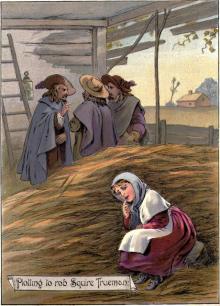 Goody Two-Shoes
Goody Two-Shoes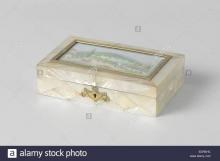 The Pearl Box
The Pearl Box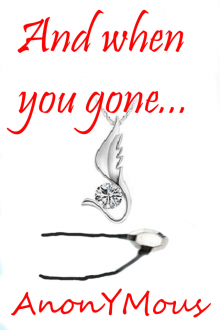 And when you gone...
And when you gone... Stranger At The Other Corner
Stranger At The Other Corner My Young Days
My Young Days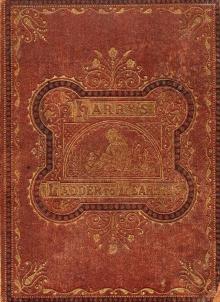 Harry's Ladder to Learning
Harry's Ladder to Learning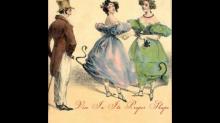 Vice in its Proper Shape
Vice in its Proper Shape_preview.jpg) Promise (the curse)
Promise (the curse)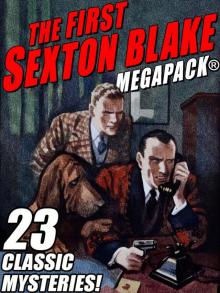 The First Sexton Blake
The First Sexton Blake Golden Moments
Golden Moments Hildebrand; or, The Days of Queen Elizabeth, An Historic Romance, Vol. 2 of 3
Hildebrand; or, The Days of Queen Elizabeth, An Historic Romance, Vol. 2 of 3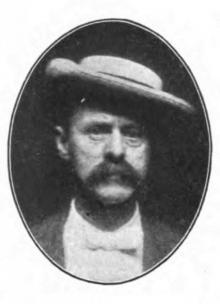 The Ice Queen
The Ice Queen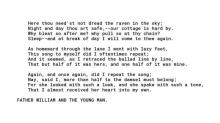 Phebe, the Blackberry Girl
Phebe, the Blackberry Girl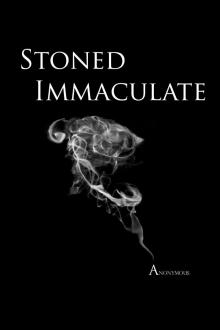 Stoned Immaculate
Stoned Immaculate Hildebrand; or, The Days of Queen Elizabeth, An Historic Romance, Vol. 3 of 3
Hildebrand; or, The Days of Queen Elizabeth, An Historic Romance, Vol. 3 of 3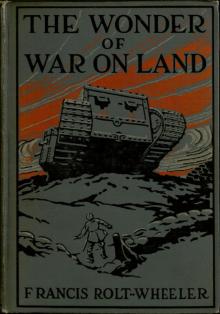 The Wonder of War on Land
The Wonder of War on Land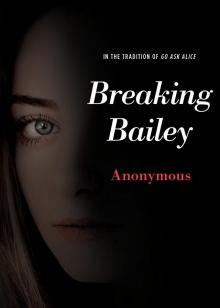 Breaking Bailey
Breaking Bailey The Little Girl Who Was Taught by Experience
The Little Girl Who Was Taught by Experience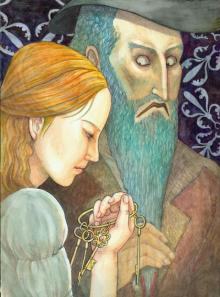 The Popular Story of Blue Beard
The Popular Story of Blue Beard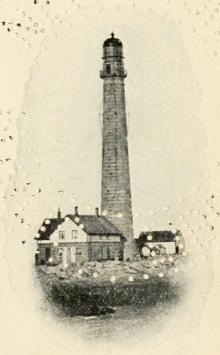 The Life Savers: A story of the United States life-saving service
The Life Savers: A story of the United States life-saving service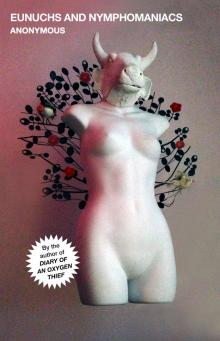 Eunuchs and Nymphomaniacs
Eunuchs and Nymphomaniacs Hildebrand; or, The Days of Queen Elizabeth, An Historic Romance, Vol. 1 of 3
Hildebrand; or, The Days of Queen Elizabeth, An Historic Romance, Vol. 1 of 3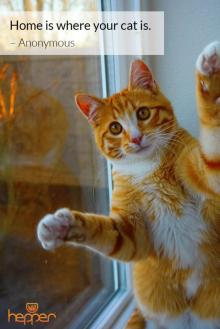 Kitty's Picnic, and Other Stories
Kitty's Picnic, and Other Stories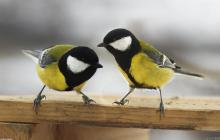 Two Yellow-Birds
Two Yellow-Birds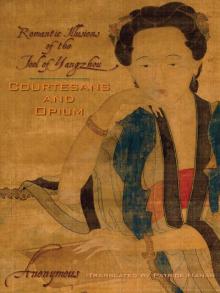 Courtesans and Opium
Courtesans and Opium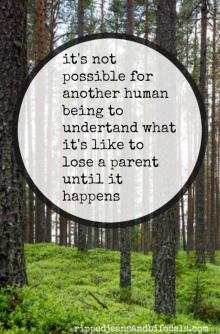 The Emigrant's Lost Son; or, Life Alone in the Forest
The Emigrant's Lost Son; or, Life Alone in the Forest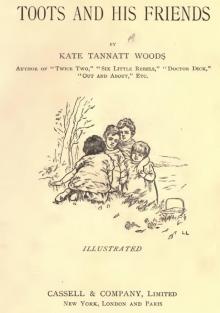 Toots and His Friends
Toots and His Friends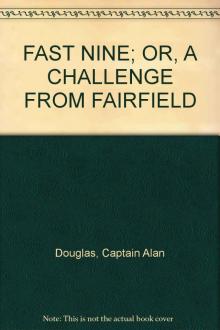 Fast Nine; or, A Challenge from Fairfield
Fast Nine; or, A Challenge from Fairfield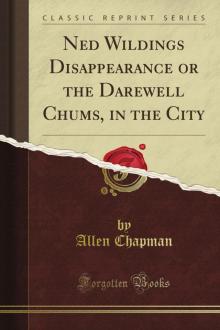 Ned Wilding's Disappearance; or, The Darewell Chums in the City
Ned Wilding's Disappearance; or, The Darewell Chums in the City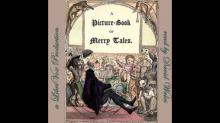 A Picture-book of Merry Tales
A Picture-book of Merry Tales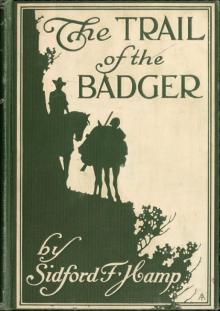 The Trail of The Badger: A Story of the Colorado Border Thirty Years Ago
The Trail of The Badger: A Story of the Colorado Border Thirty Years Ago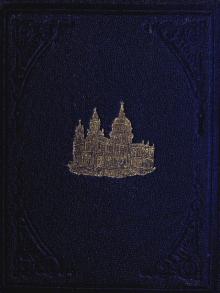 Peter Parley's Visit to London, During the Coronation of Queen Victoria
Peter Parley's Visit to London, During the Coronation of Queen Victoria The Rainbow, After the Thunder-Storm
The Rainbow, After the Thunder-Storm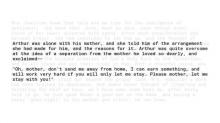 Arthur Hamilton, and His Dog
Arthur Hamilton, and His Dog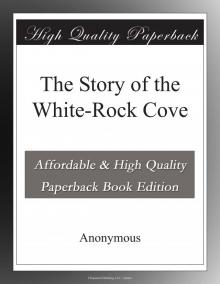 The Story of the White-Rock Cove
The Story of the White-Rock Cove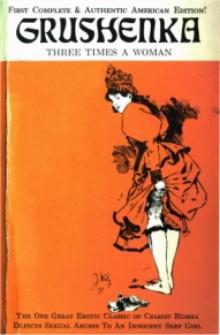 Grushenka. Three Times a Woman
Grushenka. Three Times a Woman Adventures of a Squirrel, Supposed to be Related by Himself
Adventures of a Squirrel, Supposed to be Related by Himself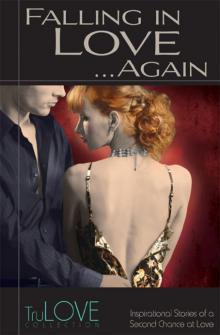 Falling in Love...Again
Falling in Love...Again The Colossal Camera Calamity
The Colossal Camera Calamity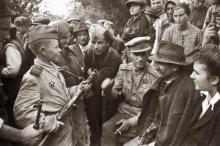 Child of the Regiment
Child of the Regiment Elimination Night
Elimination Night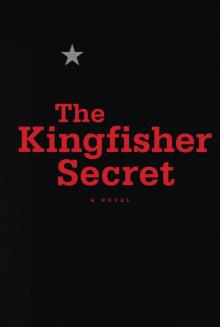 The Kingfisher Secret
The Kingfisher Secret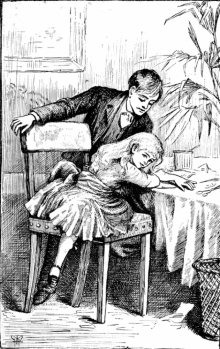 Left to Ourselves; or, John Headley's Promise.
Left to Ourselves; or, John Headley's Promise.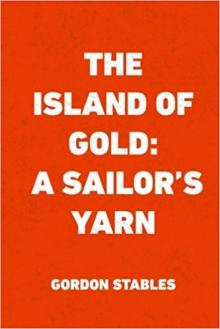 The Island of Gold: A Sailor's Yarn
The Island of Gold: A Sailor's Yarn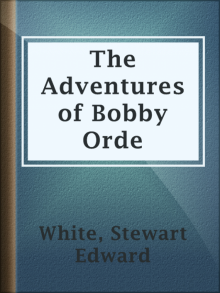 Adventures of Bobby Orde
Adventures of Bobby Orde Twain, Mark: Selected Obituaries
Twain, Mark: Selected Obituaries When Love Goes Bad
When Love Goes Bad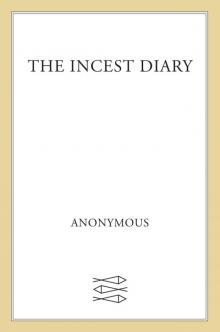 The Incest Diary
The Incest Diary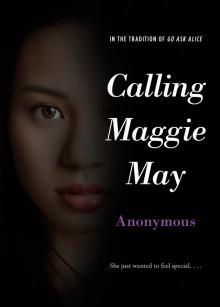 Calling Maggie May
Calling Maggie May The Infidelity Diaries
The Infidelity Diaries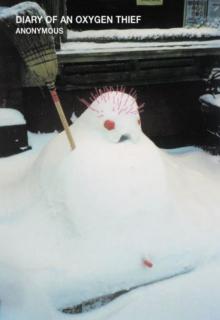 Diary of an Oxygen Thief (The Oxygen Thief Diaries)
Diary of an Oxygen Thief (The Oxygen Thief Diaries) ARABELLA
ARABELLA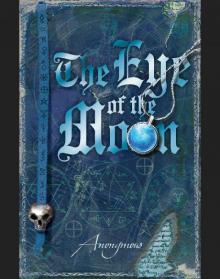 The Eye of the Moon
The Eye of the Moon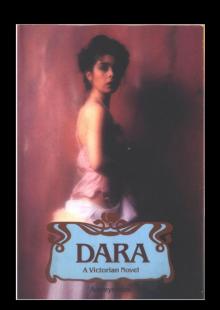 Dara
Dara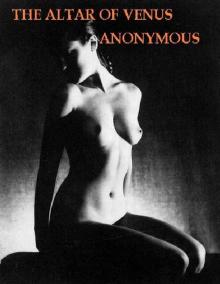 THE ALTAR OF VENUS: The Making of a Victorian Rake
THE ALTAR OF VENUS: The Making of a Victorian Rake The Book of Death
The Book of Death The Book of David
The Book of David The Devil's Graveyard
The Devil's Graveyard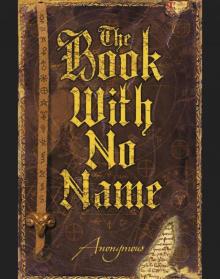 The Book With No Name
The Book With No Name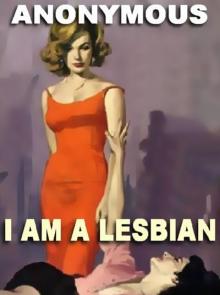 I Am A Lesbian
I Am A Lesbian Njal's Saga
Njal's Saga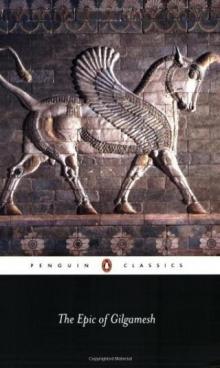 The Epic of Gilgamesh
The Epic of Gilgamesh Darling
Darling Tal, a conversation with an alien
Tal, a conversation with an alien Go Ask Alice
Go Ask Alice Aphrodizzia
Aphrodizzia The Campus Trilogy
The Campus Trilogy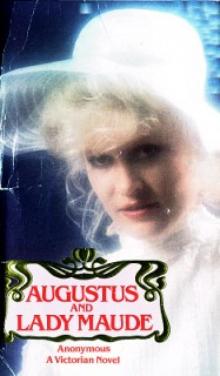 Augustus and Lady Maude
Augustus and Lady Maude Lucy in the Sky
Lucy in the Sky Sight Unseen
Sight Unseen Pleasures and Follies
Pleasures and Follies The Red Mohawk
The Red Mohawk A Fucked Up Life in Books
A Fucked Up Life in Books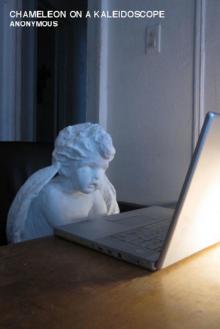 Chameleon On a Kaleidoscope (The Oxygen Thief Diaries)
Chameleon On a Kaleidoscope (The Oxygen Thief Diaries)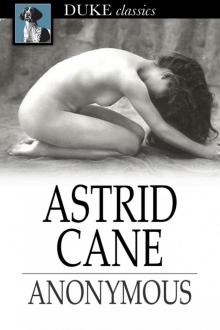 Astrid Cane
Astrid Cane BEATRICE
BEATRICE The Song of the Cid
The Song of the Cid